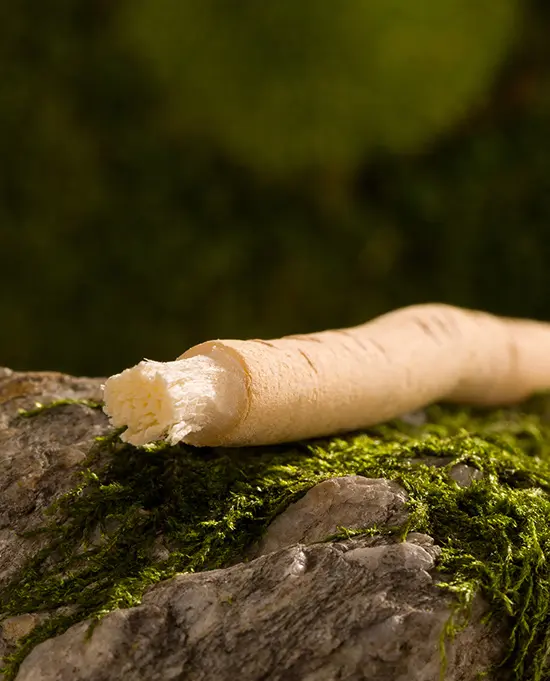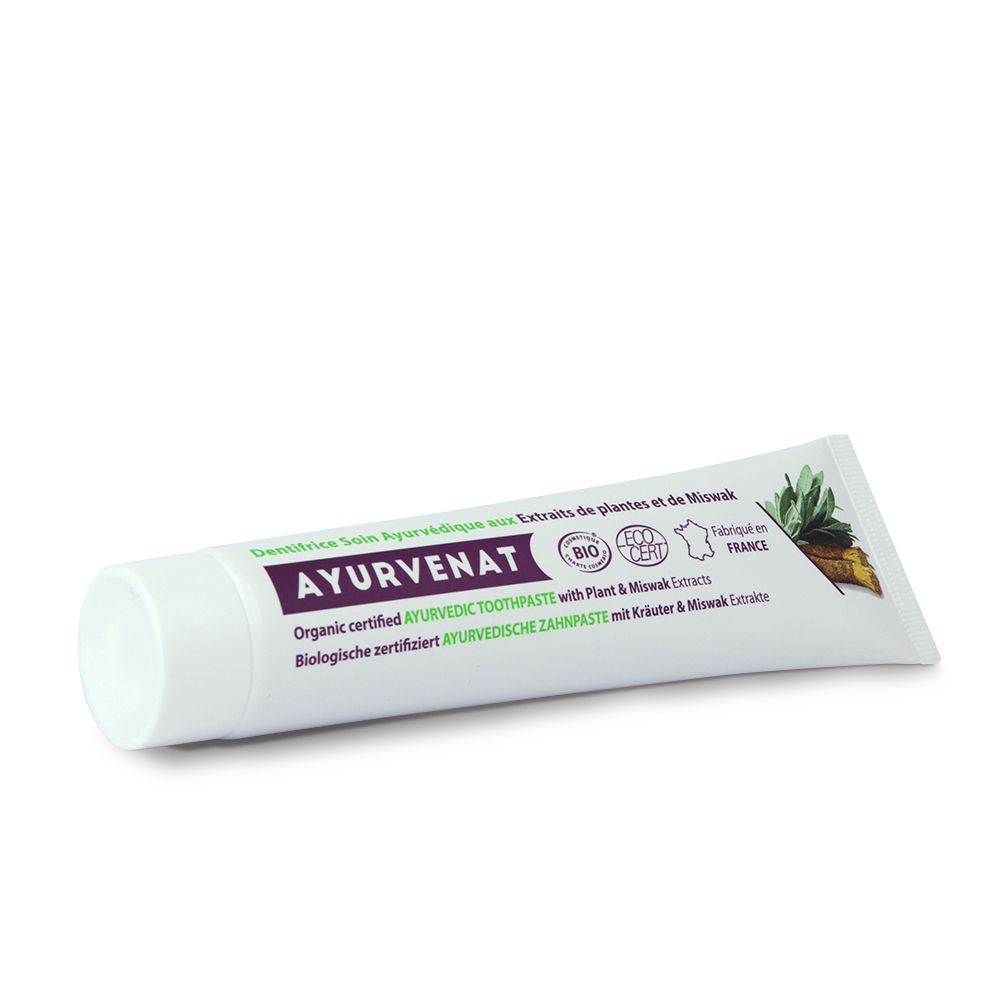Choosing a miswak toothpaste is the ideal solution for those looking for a natural and effective toothpaste. This 100% natural ingredient from the root of a tree is also called siwak. It has been used as a toothbrush for thousands of years and is recognized for its benefits on oral hygiene. Popular in the Middle East, Asia and Africa, it is becoming known in the West, especially by fans of natural and organic products. In fact, it is sometimes included in organic toothpaste formulas and is also found in powder form. This 100% natural ingredient has many virtues. It cleans, protects and whitens teeth, strengthens gums and freshens breath. All this, naturally!
Bacteria and microbes accumulate and proliferate in the moist areas of the body, particularly in the mouth. Oral hygiene should not be neglected. Fortunately, there are more and more effective toothpastes, made from natural and organic ingredients.
Its benefits for teeth and gums For the moment, in France, there are only a few brands offering miswak (or siwak) toothpaste. This plant-based ingredient is naturally composed of elements that are perfectly suited to maintaining good oral health. It cleans, whitens, fights bacteria, microbes and viruses, strengthens the gums, protects the enamel, soothes and repairs tissues, while making breath fresh. It has been recognized since Antiquity for its benefits.
On its own, it brings together various very interesting virtues. First of all, it cleans teeth and fights against the formation of dental plaque and tartar. It is also a mild antiseptic, which limits the development of inflammation and cavities. It has a positive impact on the gums and oral mucosa which are strengthened, protected and purified thanks to its antibacterial and antimicrobial effect.
The teeth are whiter, without stains and the breath is fresher. In 1986, miswak was recognized by the WHO for its interest in dental hygiene thanks to its chemical composition. These many strengths make it an ingredient of choice for entering into the composition of toothpastes.


Miswak has whitening, antibacterial and protective effects thanks to its composition including silica (gentle anti-tartar and anti-stain abrasive), alkaloids: antimicrobial and antibacterial active ingredients, fluoride, vitamin C, calcium, tannins, sulfur, etc. It prevents the proliferation of bacteria that cause periodontal diseases, fungi and viruses such as herpes.
Fluoride, present in small doses, strengthens the enamel which acts as a barrier to prevent cavities. Salvadorine is an alkaloid, in addition to its antiseptic effect, it soothes, repairs and protects the oral mucosa.
Vitamin C helps tissues to regenerate, thus healing small oral wounds. Its bitterness, due to the presence of sulfur, stimulates the secretion of saliva for a reinforced antiseptic effect. This is why we often find an ingredient there to camouflage this bitter taste in miswak toothpastes.
It is also called "siwak" in Arabic or "Arak wood". It is a toothbrush stick from the root of a tree found in Africa, the Middle East and Asia, in semi-arid regions: Salvadora Persica. Already in ancient times, miswak was used as a toothbrush in the form of fibrous chewing sticks. In India, it is mentioned in ancient texts of Ayurvedic medicine.
A plant ingredient used in Ayurveda Used in the form of a small stick to chew and rub on the teeth. It cleans and purifies the mouth thanks to its dual action: mechanical and chemical. The fibers, through friction, eliminate dental plaque, while releasing substances with a positive impact on the teeth, gums and tongue. The miswak/siwak stick can be used without toothpaste since its natural components are sufficient.
The end must be cut to remove 1 to 2 cm of bark, then chew it, which will make it fibrous (like the bristles of a toothbrush). Then moisten this end to make it more flexible, before rubbing it on the teeth for several minutes. The movement must be done on the side of the root of the tooth: near the gum, to the end of the tooth (from top to bottom, or from bottom to top). Finish by rubbing the tongue, then, after use, rinse the stick and let it air dry. It is used in its entirety, cut off the damaged part as you go, then the small remaining unusable piece will naturally degrade in compost.


Recognized for 7,000 years as the "toothbrush tree": Salvadora Persica, also has other virtues for hygiene and health. The branches, leaves, flowers, fruits, seeds were used in medicinal preparations in traditional medicine. Effective for relieving coughs, rheumatism, hemorrhoids, headaches, etc.
Several studies conducted in countries in the Middle East or Africa have shown that people who used these sticks saw their dental plaque decrease. It has also been shown that the development of cavities and gingivitis was less frequent thanks to the antimicrobial and antibacterial properties. Those who used it regularly had better oral health than average.
These sticks can still be found for purchase, but there are also more and more miswak toothpastes. The idea is to combine the effectiveness of a “modern” toothbrush with the virtues of this 100% natural ingredient.
Ayurvenat offers an organic, menthol-free miswak toothpaste. Formulated to gently clean and sanitize teeth and gums.
Ayurvenat miswak toothpaste is inspired by Ayurvedic medicine. It is composed of 99% natural ingredients and 23% organic ingredients. It also contains sage hydrosol, known for its sanitizing and purifying effect. Among its ingredients, we find natural cellulose, a mild abrasive ingredient that cleans teeth and reduces dental plaque. It is classified in the first category "low abrasive" with an RDA (Relative Dentin Abrasivity) of 57.23.
This means that it does not pose a danger to enamel, dentin and cementum. The miswak extract used in this toothpaste comes from India. The sticks are transformed into powder then diluted in a glycerin-based preparation before being added to the other ingredients to form a creamy paste. The various customer reviews about this product show that it is popular for its effectiveness, its healthy composition and its organic certification. It is recognized for the properties of its ingredients, cleaning, purifying, gentle and its pleasant taste. It is also recommended by dentists for its compatibility with homeopathic treatment.
Conventional and organic toothpastes are often singled out because of some of their components, which are sometimes controversial. We are talking in particular about titanium dioxide, used to whiten the product. It should be noted that titanium dioxide is considered potentially dangerous when present in the form of nanoparticles. It has been banned in cosmetics labeled cosmos by Cosmebio since June 2023 (except for sunscreens and cosmetics whose role is to color the skin or hair).
This Ayurvenat miswak toothpaste is not enriched with fluoride, tests carried out have shown a fluoride concentration of 147 ppm in this product. Consuming too much of it (because it is already present in water and vegetables for example) could be harmful to health. Also, it does not contain menthol. The absence of menthol makes this toothpaste compatible with homeopathy (because mint cancels out the effects of homeopathy). The formula of this product has evolved in recent years: it no longer contains silica. It has been replaced by natural cellulose, a mild abrasive agent.
Finally, it is no longer sold with a cardboard box in order to reduce packaging. This miswak toothpaste from the Ayurvenat brand is inspired by traditional Indian medicine. The aim is therefore to combine several ingredients of natural origin; recognized for their benefits and balancing virtues in order to improve overall well-being. Moreover, massage is frequently used to take care of oneself in depth; this is why there is a massage balm with 18 active Ayurvenat plants. If you would like to know more, here is an article on the benefits of Rosemary - used in Ayurveda - and the principles of this traditional medicine.
check_circle
check_circle